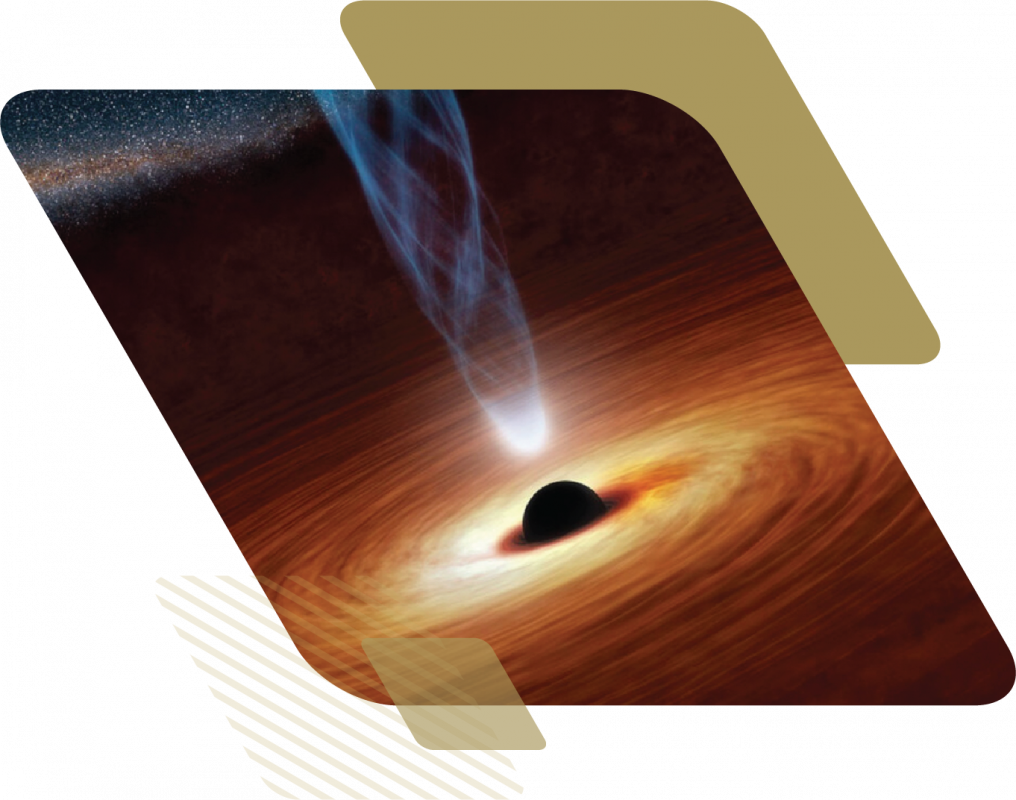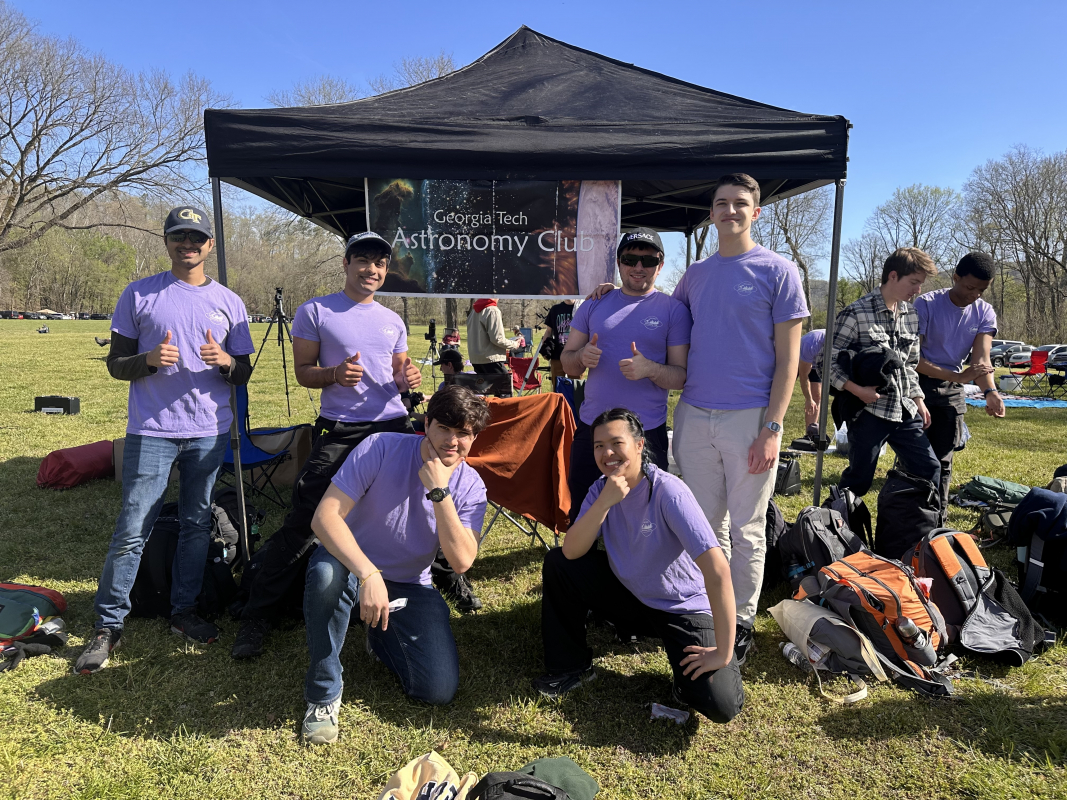
The School of Physics offers a bachelor of Science degree in astrophysics. This major provides comprehensive and rigorous training in the fundamental processes and laws that govern planetary systems, stars, galaxies, and the Universe. In addition to these core topics, the degree includes training in computational techniques and data analysis that can be applied to a variety of disciplines. Students are able to develop their own programs of study with the aid of faculty advisement.
Download fact and major information as a pdf here.
Awe-inspiring research
Astrophysics research in the School of Physics is hosted in the Center for Relativistic Astrophysics (CRA). CRA faculty and students study the extreme environments around black holes and neutron stars, the dynamics of planetary systems around distant stars, the formation of the first galaxies, the ripples in space-time from merging black holes, and the whispers of mysterious neutrinos passing through the Earth. Researchers at the CRA make use of the world’s fastest supercomputers and are involved with cutting-edge instruments such as the Laser Interferometer Gravitational-Wave Observatory (LIGO) and the IceCube Neutrino Observatory. Astrophysics majors have the opportunity to work closely with faculty and their teams on research projects. These projects often lead to presentations at scientific conferences and co- authorship on research publications. Students may also elect to complete the Institute’s Research Thesis Option
Creating community
Astrophysics majors will be part of a vibrant scholarly and social environment in the School of Physics. The School hosts the GT Astronomy Club, a chapter of the national Society of Physics Students, and the Society of Women in Physics. Activities such as general interest lectures, outreach, field trips, and social functions allow students to interact with their peers and faculty members.
FOR MORE INFORMATION
For more information, please see physics.gatech.edu and cra.gatech.edu.
Undergraduate research
Astrophysics majors are encouraged to get involved in research throughout their degree program. Several undergraduate students have presented research at national conferences and have been co-authors on papers published in leading scholarly journals. For example:

- Karthik Yadavalli, working with Prof. Gongjie Li and her former postdoc, led a paper on the habitability of Tatooine worlds, i.e., planets around stellar binaries. (DOI: 10.1093/mnras/staa2980)
- Elizabeth Mone, working with Prof. John Wise and graduate student Brandon Pries, studied the formation sites of massive black holes in the early universe and is publishing a first-author paper in The Astrophysical Journal.
- Mathilda Averitt-Mackenzie joined Prof. Ballantyne’s group and led a study of the evolution of growing supermassive black holes in the Universe and their contribution to the cosmic X-ray background. (DOI: 10.1093/mnras/stz1065)
- In Prof. Cadonati’s LIGO group Nadia Qutob used machine learning tools to train automatic glitch detection algorithms for use with gravitational wave data.
- Forrest Kieffer, working with Prof. Bogdanović, investigated and led a paper describing what happens to red giant stars when they collide with an accretion disk in the center of a galaxy. (DOI: 10.3847/0004-637X/823/2/155)
Fascinating classes
- Introduction to Astrophysics
- Stars and Planets
- Astrophysics Lab
- Relativity
- Cosmology and Galaxies
- Theoretical Astrophysics
International opportunities
Students in the School of Physics have a wide range of opportunities for undergraduate study at institutions throughout the world. Further information can be obtained from the Office of International Education (www.oie.gatech.edu).


Careers and future studies
The skills learned as part of the B.S. in Astrophysics are transferable to a wide range of careers across multiple sectors of the digital economy, such as data scientists, software engineers, and research analysts. Graduates have found jobs in the finance sector, with Fortune 500 companies, and at innovative start-ups. For those who want to deepen their understanding of the universe after graduation, the B.S. in Astrophysics will qualify students for graduate programs in physics and astrophysics at universities around the world. Georgia Tech has the largest voluntary co‐op education program in the nation. Participation in co‐op or internship programs provides financial support for students’ studies, and invaluable experiences. See www.coop.gatech.edu.


